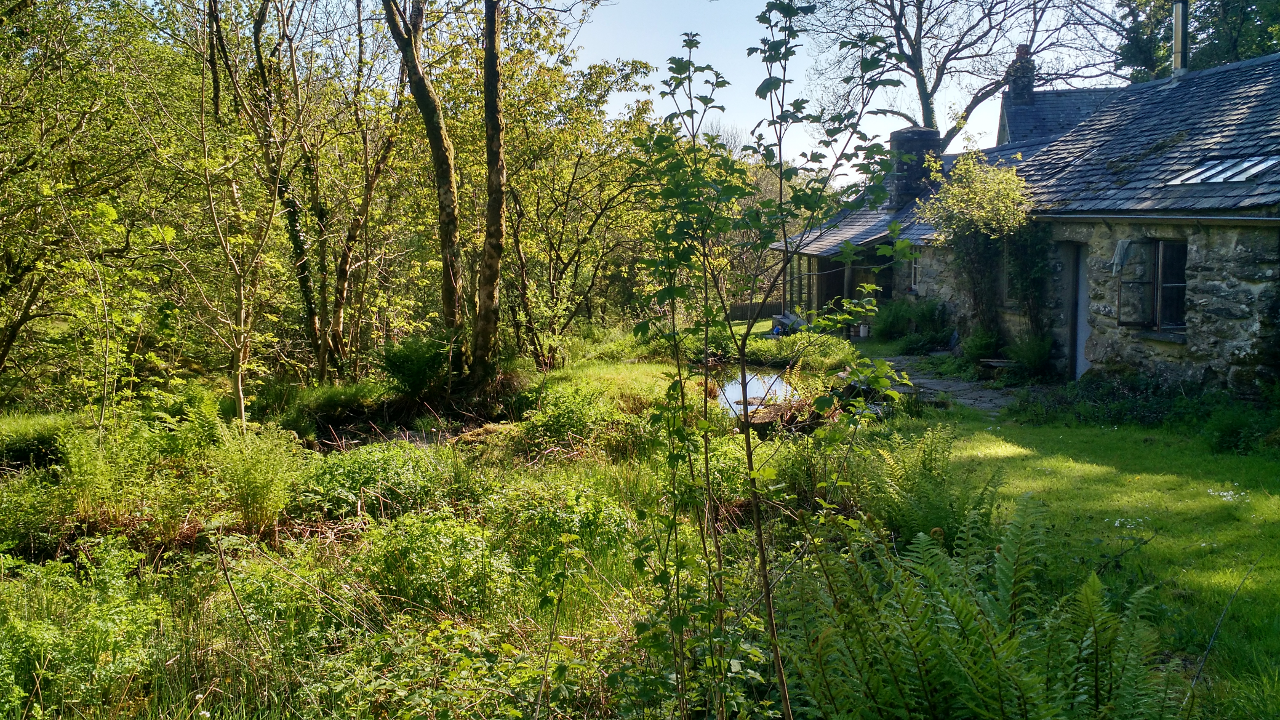Wild Impact
The relationship between ourselves the natural world and technology is a complex question. We necessarily have some impact on the rest of the natural world through our presence. On the one hand we value wild places, being in a forest, surrounded by greenery, on the other we want comfort, from the clothes we wear when outside to being able to retreat back to a warm heated home when the rain comes in. Our enjoyment of the natural world often requires transport, the ability to put our walking, climbing or mountain biking gear in a car or train to get to that bit of nature we want to visit.

I love being in nature, walking through forests, swimming in clean rivers, enjoying the natural world around us. I grew up on a small holding in North Wales, a particularly wild place, surrounded by woodland, a small river running past, views between the trees up to the mountains behind.
Perhaps in an interesting contrast I grew up fascinated by science, technology and engineering. In particular this idea of progress, that we where developing forward into a bright future guided by the rationality of science and that we could make our lives better with the technologies that we develop.
I’m interested in this question of our impact and how we choose what the balance is between our value of the natural world, our need for food, a degree of comfort and our modern desires, and where physical limits are present, how these might effect this balance.
In this blog I hope to try and explore this topic slowly over time, I know from my research so far, from the last 10 years or so that I’ve been more actively researching climate change, biodiversity loss and other human caused impacts as well as the potential solutions, that this question is incredibly complex. I feel like I’ve made some progress in understanding over that time but I still feel that my in-depth knowledge only covers parts of what is a much larger topic.
On the one hand perhaps it seems that to talk about balance is to under-play, when all signs suggest our impact is off the scale. We live at a time where our impact on the natural world is causing both significant biodiversity loss primarily though the expansion of agriculture and our use of fossil fuels for energy threatens climate change. But still when we look to the future and the solutions available to us, even if we succeed in decarbonising everything, the question of balance is still important, there are still environmental impacts from mining for zero carbon technologies and for some the concern about visual impacts of technologies such as wind or radioactivity risks from nuclear. In the same way that diets can greatly change the amount of land use required for agriculture, we could also choose between lifestyles with higher or lower electric car mileage, a higher or lower number of electric car's per household, higher or lower amounts of electric or renewably produced synthetic fuelled flight. Higher demand will often mean more and larger infrastructure, more wind turbines, solar panels, car's, mining, expenditure on roads, parking, train infrastructure, electricity grids etc. Even basics we take for granted such as a warm home and hot water take significant levels of technology and industrial production. This said some of these questions veer away from strictly questions of environmental impact and existential threats such as climate change, towards questions of quality of life which have a more personal interpretation.
There are many ideas, visions of the future in green philosophy from deep ecology to eco-modernism, from a weary view of technology to a more optimistic view, from agrarian futures to city focused futures, from ideas and solutions that are decentralised to solutions that are more centralised in nature, growth vs degrowth, from capitalism being a critical obstacle to capitalism being a solution.
Psychologically our ideas of the world have a huge amount of power. They shape how we see the world around us, they can shape our choices, where we choose to live, what we do for our work, what we eat. How do we make sure our ideas and actions match the reality of the situation? This blog is my attempt to navigate and explore some of these questions and application in my own life.